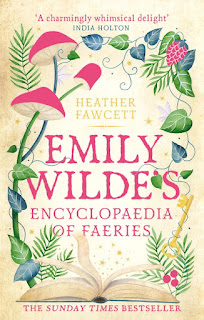I really enjoyed this book and would like to recommend it highly. My favourite book published in 2023.
The setting is early twentieth century Europe. An intrepid lady academic, Emily Wilde, travels to a (presumably fictional) Scandinavian island on her own on a mission to add research findings to her 'Encyclopaedia of Faeries'. The story is told in the style of a scholar's journal entries, and is elegantly executed.
Once there, Emily must learn to fit in with locals of the village, Hrafnsvik. There is the gruff grandmother, Thora who possesses surprisingly deep knowledge of the local hidden 'folk'; the competent headwoman, Auda; a desperately sad couple dealing with a child replaced by a fairy changeling; and Finn, her landlord's son.
What follows is a series of comical / cringeworthy misadventures, revealing her practical inexperience and ignorance of the local norms. Emily initially explores Ljosland on her own, before being joined by her male research colleague, Wendell Bambleby. He is her friend, rival and also a source of both amusement and annoyance.
Several revelations emerge about Wendell and his character as events progress. Emily must deal with the Hidden King of the fairies and an enchantment she is affected by. There are interludes in the main story with several convincingly authentic fairy tales included. I also enjoyed the sections written by a different character (Wendell), and playfulness with dates and times (i.e. as if fairy tale magic itself is influencing the structure of the story).
One of the novel's strengths is its descriptions of remote islands settings and the faeries themselves. It establishes a wonderful atmosphere. For example, the main character encounters a brownie with needle-like fingers who 'seemed to step into the landscape as if it were a door'. There are magical trees, hidden paths and kingdoms, and enchanted objects such as cloaks and slippers.
Fawcett shows she is well-versed in fairy tales and folklore. There are vivid characterisations, particularly the characters of Emily, Thora, Auda and Wendell. I enjoyed the refreshing humour, fairy tale cleverness, and the understated 'snarky' romance.
As a side-note, I have to admit I'm baffled as to why some other reviewers found some of the plot hard to follow. All seemed absolutely clear to me, and the occasional footnotes throughout the novel provided some added interest and could be skipped easily if desired. I was surprised, though, to find no mention of female scholars being disadvantaged and looked down upon (these were a common experience by female researchers in the time period). There were also a couple of incidents of violence that appear almost out of nowhere in the story. (Casually bloodthirsty...part of the humour? Revealing the true, wild nature of the faeries?) I did find it unusual to hear of a female-female wedding being planned in this time period (but well, this is fantasy...). And just why is the final fairy tale, 'The Golden Ravens', included at the end of the book?
We'll have to wait for book 2 to find out. I look forward to it.
Rating: 5 stars (out of 5)
⭐⭐⭐⭐⭐




No comments:
Post a Comment